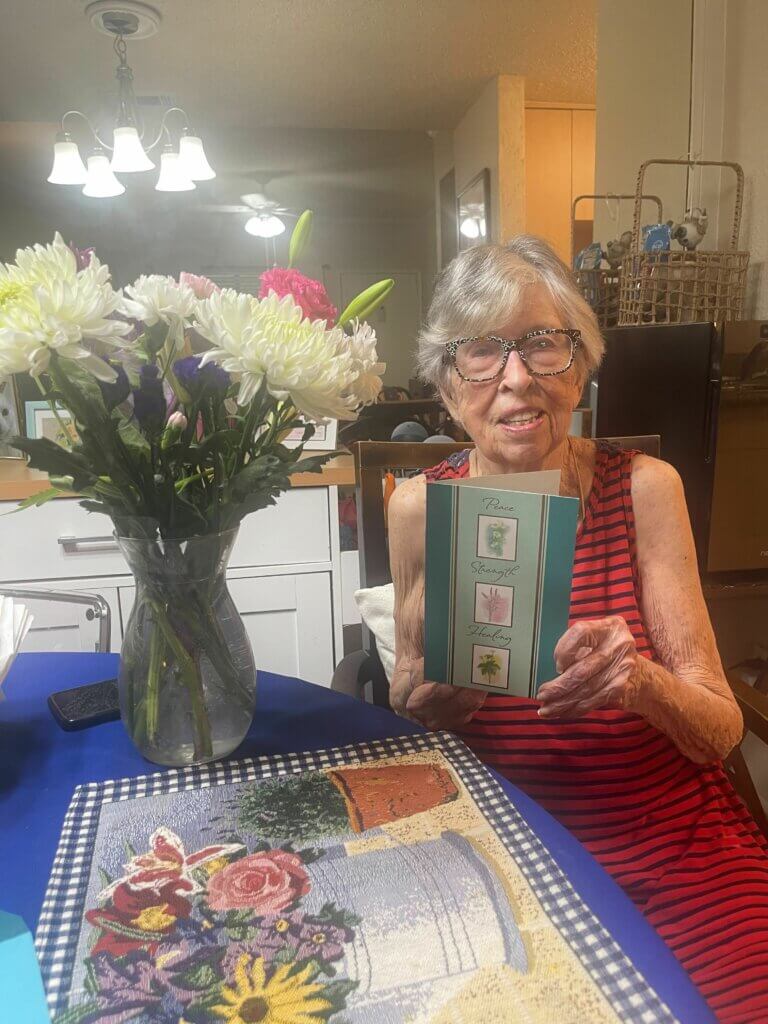Explore reverse mortgages as an option to pay for senior care.
Planning for the long-term care of a loved one is a complex task, often involving considerations of whether they can age in place or need to transition to assisted living or memory care. Financing such care presents challenges, and while selling a home is a common approach, for those wanting to remain in their home, exploring reverse mortgages may be a solution for senior care.
Selling a cherished home for senior care involves emotional considerations and practical steps.
Understanding Reverse Mortgages: A Financial Tool for Seniors
A reverse mortgage taps into home equity, calculated by subtracting the mortgage balance from the home’s appraised value. Exclusive to individuals aged 62 and older, these loans are designed to aid seniors in aging in place or covering essential expenses like healthcare and home modifications.
Ownership and Repayment: Dispelling Common Misconceptions
Contrary to a common misconception, individuals with reverse mortgages retain ownership of their homes throughout the loan period. Repayment is deferred until the last borrower’s death or a year after moving out. At that point, the home is sold, and the proceeds settle the loan, with any surplus going to the homeowner or beneficiary.
Exploring Types of Reverse Mortgages
Three main types include Home Equity Conversion Mortgages (HECMs), Single-purpose reverse mortgages, and Proprietary reverse mortgages. HECMs, accounting for 95% of cases, are insured by the Federal Housing Administration (FHA) and come with specific eligibility criteria.
- Home Equity Conversion Mortgages (HECMs): HECMs, constituting the majority of the reverse mortgage market, are federally insured loans provided through the FHA. These mortgages offer financial flexibility to seniors aged 62 and older, enabling them to tap into their home equity without immediate repayment obligations. The FHA insurance safeguards borrowers and their heirs from owing more than the home’s value, providing a secure option for those seeking additional funds for aging in place, healthcare expenses, or home modifications.
- Single-Purpose Reverse Mortgages: Single-purpose reverse mortgages are specialized loans typically offered by state and local government agencies or select nonprofits. These mortgages serve a specific purpose defined by the lender, such as home renovations or property tax deferral. While they may have limited availability and specific usage restrictions, single-purpose reverse mortgages are often considered a cost-effective option, appealing to those with particular needs addressed by the loan’s designated purpose.
- Proprietary Reverse Mortgages: Proprietary reverse mortgages, also known as jumbo reverse mortgages, are private loans provided by non-governmental financial institutions. Unlike HECMs, these mortgages are not federally insured, offering more flexibility in terms, fees, and loan amounts. Proprietary reverse mortgages are well-suited for individuals with high-value homes that may exceed HECM lending limits. Borrowers opting for proprietary reverse mortgages benefit from the customization provided by private lenders but should carefully review and compare offerings due to the variability among different institutions.
HECM Requirements and Usage of Funds
To qualify for an HECM, individuals must:
- Own and reside in their homes
- Be at least 62 years old
- And have equity in the property
Eligible properties include:
- Single-family homes
- Condominiums
- Townhomes
- Manufactured houses meeting FHA standards
HECM funds can be used for various purposes, including:
- Assistance with home care services, encompassing support with meal preparation, housekeeping, and daily activities
- Options for assisted living, memory care, or nursing home care for a spouse or parent
- Coverage for out-of-pocket medical expenses, including necessities like hearing aids
- Implementation of home safety modifications to facilitate aging in place, such as installing a wheelchair ramp or walk-in shower
- Access to adult day care services or respite care for flexible and supportive caregiving solutions
Eligibility, Loan Amounts, and Payment Options
Eligibility
Reverse mortgage eligibility is based on payment history and the ability to cover property-related costs, like taxes and insurance. Income is also considered, and many seniors become eligible with their social security income.
Loan Amount
The amount a person can receive through a reverse mortgage is significantly influenced by their age and location. While older borrowers typically qualify for more substantial amounts, the Federal Housing Administration (FHA) sets lending limits at $1,089,300 in high-cost areas and $472,030 in low-cost areas. With a reverse mortgage, monthly interest accrues, causing the loan balance to grow over time. Borrowers, however, receive less than the home’s full value to accommodate these interest charges. Generally, reverse mortgages range between 80% to 85% of the home’s value, primarily determined by the borrower’s age at the loan initiation.
Additionally, the loan amount is influenced by prevailing interest rates and the home’s value, with online tools like a reverse mortgage calculator providing estimates based on age, ZIP code, and home value.
Payment Options
Reverse mortgage recipients can choose to receive funds through:
- Monthly payments
- Lump sum
- Line of credit
Depending on the loan type, a combination of payment options may be available.
Considerations: Pros and Cons of Reverse Mortgages
Pros
- Elimination of monthly mortgage payments, providing additional income.
- Retention of home ownership, contingent on maintaining the home and meeting tax and insurance obligations.
- Non-taxable reverse mortgage payments that don’t impact Social Security or Medicare benefits.
- Federal insurance and protection for HECMs, even in the event of lender default.
- Financial flexibility to utilize payments for current and future needs.
Cons
- Inherent costs, including origination fees, closing costs, insurance premiums, and servicing fees, which can accumulate.
- Accruing interest adding to the loan balance, with rates tied to financial indexes.
- Potential Medicaid implications based on received income.
- Limits on the amount of money that can be generated, determined by FHA lending limits.
Decision-making and Professional Guidance
Before opting for a reverse mortgage, individuals should carefully weigh the pros and cons. Professional financial advice is crucial, and HUD mandates consultation with an independent financial counselor before applying for an HECM.
When Does a Reverse Mortgage Make Sense for Senior Care?
A reverse mortgage may be suitable if one:
- Plans to stay in their home for over five years
- Needs additional funds for a loved one’s senior living community expenses
- Can manage home upkeep
- Has low-interest rates
When to Reconsider a Reverse Mortgage for Senior Care?
A reverse mortgage is not suggested if the borrower has:
- Plans to move within five years
- Social isolation
- Inability to live safely at home
- Plans of borrowing at a younger age.
Seeking Professional Guidance
Experts recommend consulting professionals for long-term care and financial options. Resources like HUD’s counseling agency finder, Let’s Make A Plan, and the National Reverse Mortgage Lenders Association can assist in finding qualified advisors.
Contact us at 832-371-6600 for a free consultation to share the challenges you’re facing, and to learn how our personalized home care services can help you.
Home Matters Caregiving proudly serves the Houston Metro area providing care for seniors wherever they call home.












